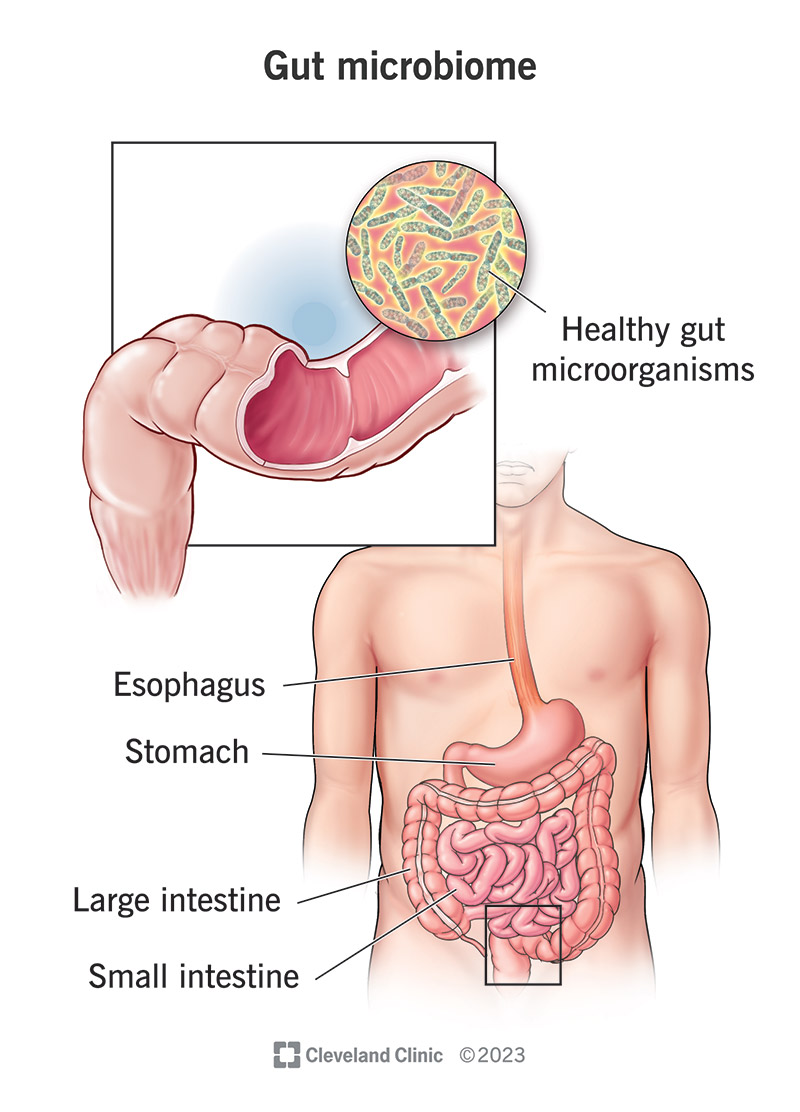Introduction:
The gut microbiome, a complex ecosystem of microorganisms residing in the human digestive tract, plays a crucial role in maintaining health and well-being. Recent advancements in microbiome research have shed light on the profound implications of gut microbiota composition for human physiology, metabolism, and disease risk. In this guide, we’ll delve into the fascinating world of the gut microbiome and its implications for food research, uncovering the interplay between diet, microbiota, and human health.
Understanding the Gut Microbiome
The gut microbiome is a diverse community of bacteria, viruses, fungi, and other microorganisms that inhabit the gastrointestinal tract. Here’s what you need to know about the gut microbiome:
Microbial Diversity
The gut microbiome is characterized by its remarkable diversity, with thousands of species coexisting in symbiosis with the human host. This diversity plays a critical role in maintaining a balanced ecosystem within the gut and supporting various physiological functions.
Host-Microbe Interactions
The interactions between the host and gut microbiota are multifaceted and dynamic, influencing processes such as digestion, nutrient absorption, immune function, and metabolism. A healthy gut microbiome is essential for maintaining homeostasis and resilience against external stressors.
Impacts on Health
Emerging research has linked alterations in the gut microbiome to a wide range of health conditions, including obesity, diabetes, inflammatory bowel disease (IBD), cardiovascular disease, and mental health disorders. Understanding these associations provides valuable insights into disease mechanisms and potential therapeutic interventions.
Influence of Diet
Diet plays a pivotal role in shaping the composition and function of the gut microbiome. Different dietary patterns, such as high-fiber diets, plant-based diets, and Western-style diets rich in processed foods, can profoundly impact microbial diversity and metabolic activity in the gut.
Food Research Implications
The gut microbiome holds significant implications for food research and development. By understanding how dietary components interact with the gut microbiota, food scientists can optimize formulations, ingredients, and processing techniques to promote gut health and overall well-being.
Prebiotics and Probiotics

Prebiotics are non-digestible dietary fibers that selectively promote the growth and activity of beneficial bacteria in the gut. Probiotics are live microorganisms that confer health benefits when consumed in adequate amounts. Incorporating prebiotics and probiotics into food products can enhance their nutritional value and support gut health.
Personalized Nutrition
Advancements in microbiome research are paving the way for personalized nutrition approaches tailored to individual microbiota profiles. By analyzing gut microbiome composition and function, researchers can develop targeted dietary interventions that optimize health outcomes and mitigate disease risks.
FAQs
What is the gut microbiome?
The gut microbiome refers to the complex community of microorganisms residing in the human gastrointestinal tract. This ecosystem includes bacteria, viruses, fungi, and other microbes that play a crucial role in digestion, metabolism, and immune function.
How does the gut microbiome influence health?
The gut microbiome influences health by modulating processes such as digestion, nutrient absorption, immune function, and metabolism. Alterations in the gut microbiome have been linked to various health conditions, including obesity, diabetes, inflammatory bowel disease, cardiovascular disease, and mental health disorders.
How can diet impact the gut microbiome?
Diet plays a critical role in shaping the composition and function of the gut microbiome. Different dietary patterns, such as high-fiber diets, plant-based diets, and Western-style diets rich in processed foods, can profoundly impact microbial diversity and metabolic activity in the gut.
What are prebiotics and probiotics?
Prebiotics are non-digestible dietary fibers that selectively promote the growth and activity of beneficial bacteria in the gut. Probiotics are live microorganisms that confer health benefits when consumed in adequate amounts. Both prebiotics and probiotics can support gut health and overall well-being.
How can personalized nutrition benefit gut health?
Personalized nutrition approaches tailored to individual microbiota profiles can optimize gut health and mitigate disease risks. By analyzing gut microbiome composition and function, researchers can develop targeted dietary interventions that support a healthy microbiome and promote overall wellness.
Can changes in the gut microbiome impact mental health?
Yes, alterations in the gut microbiome have been linked to mental health disorders such as depression, anxiety, and cognitive decline. The gut-brain axis, a bidirectional communication pathway between the gut and the brain, plays a key role in regulating mood, behavior, and cognitive function.
Conclusion
The gut microbiome represents a fascinating frontier in food research, with profound implications for human health and disease. By understanding the complex interactions between diet, microbiota, and host physiology, researchers can unlock new insights into personalized nutrition, disease prevention, and therapeutic interventions. As we continue to unravel the mysteries of the gut microbiome, the future of food research holds promise for revolutionizing dietary recommendations and improving public health worldwide.


